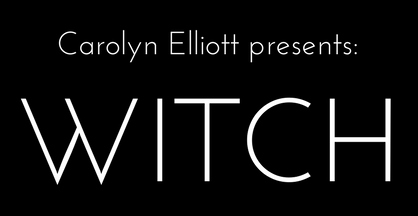by Kezia Vida
Even though everybody dreams in unique ways, I’ve come to realize that there are some myths hovering out there about dreams. This bothers me, because I know dreams are one of the most powerful tools humans have at their disposal.
For me, saying anything definitive about dreams is difficult because they are so personal to each dreamer. Every individual has their own relationship and understanding of their dreams and I feel it’s essential to respect that in order to do dreamwork.
At the same time, there are some assumptions made about dreams that I think serve as barriers to people developing a rich and intimate relationship with their dreams. Those assumptions are what this post is about.
I hope through examining these myths we can all become a little bit more open to the unique dream medicine that comes to each and every one of us, every single night.
MYTH #1: Scientists have shown that dreams function to X or Psychologists have discovered that dreams are X.
I hear some variation of this statement about 50-60% of the time I tell people that I work with dreams. So let’s just be clear right now: Scientists have yet to prove ANYTHING definitive about why we dream, what function dreams play in our lives, or even why we sleep at all for that matter.
Sure, there are a lot of theories and people have certainly done studies—but they haven’t proven anything for certain.
To me, this is what makes dreams and dreamwork so exciting. It’s an open frontier, and since you’re a human, you dream, so you have front row seats to the unfolding discovery.
And I’ll let you in on a little secret: While I certainly think what science has to say about sleep and dreams is fascinating and informative, I don’t think scientists or psychologists will ever be able to come to a consensus about what dreams are or why we have them.
Why? Because ultimately a dream is a completely unique experience that you and you alone have. They are completely subjective, and I have a firm belief that people should get to trust what they feel about their own subjective experiences. In fact, it’s our right to trust ourselves. We get to believe whatever feels right to us about our dreams.
MYTH #2: I’m not someone who remembers dreams.
Ah! I hear this so often! People seem to think that since they don’t regularly remember their dreams now, they are just ‘the type of person’ that doesn’t remember dreams.
Understand, dreaming is a practice like yoga or meditation. If you put intention towards dreaming, you will remember your dreams more often.
Of course there are wide variations between individual dream recall, and some naturally remember their dreams more often than others. But just like any other skill, with practice and intention, anyone can drastically improve their dream recall.
MYTH #3: To figure out what your dream is trying to tell you, look it up in a dream dictionary or focus on symbolism.
Don’t get me wrong, I used to do this all the time. And symbolic frameworks like Tarot and Astrology completely thrill me. I do it less now, but googling what does X mean in a dream can still be a very interesting way to open up a dream. Sometimes.
But I always advocate for dreamwork that focuses on feeling and embodying dreams deeply before analyzing or interpreting them. As a society, we’re still dealing with the legacy of Freud and his version of dream ‘interpretation’ when we think about dreams. Freud roughly outlined a very right-brained, analytical approach to dream exploration.
It’s natural enough—when we awaken from a powerful dream, our minds want to interpret it, pick it apart until we come up with an explanation for it.
In my experience, this is the fastest way to miss what your dream might be trying to offer you. When we rely too heavily on our analytical mind to make sense of our dream, we often draw conclusions from our dreams that simply confirm the story we are already telling ourselves about who we are, what we believe, and what we are capable of.
Start with experiencing your dreams first with your heart, then bring the mind to the party.
MYTH #4: Lucid dreaming is the way to use your dreams for healing or spiritual transformation.
This is an assumption that seems to have been gaining more traction in recent years, as lucid dreaming has become a popular method of dream exploration. I haven’t personally done a lot of work with lucid dreaming but know others who have had profound experiences with the technique.
From what I’ve read, I think it can be a great way to work with your dreams. Personally, I haven’t had any luck trying to lucid dream more often. And guess what? I’ve still found enormous power and insight within all the ‘regular’ dreams I have every single night.
From all the information and products out there trying to increase the likeliness of having a lucid dream, I’m guessing there are others who are having trouble getting their lucid dreaming mojo going. For all of you I just want to say—that’s totally fine!
You don’t even need to remember a dream very well to for the medicine of your dreams to have an effect on your life—and I promise you, as you develop your relationship with your dreams, all of your dreams take on a greater significance.
MYTH #5: If you dream about something shameful or terrifying or just plain awful, that means there’s something wrong with you, deep down inside.
Now this one is near and dear to my heart, because I know a lot of people have disturbing dreams that leave them with more questions than answers. Truly, I think difficult dreams are biggest reason people resist working with dreams more generally. And, again because of the legacy of Freud, it can be tempting to believe that if something horrible happens in our dreams, it means there’s something wrong with us.
I have clients that I’ve worked with for years and no matter how many times and ways I try to tell them not to judge themselves because of their dreams, the powerful energy of shame that wants to condemn who we are can be very hard to resist.
So let me be clear: no matter how excruciating your dream is and no matter what horrible thing you do within your dream, you are a human being that is capable of feeling and transmitting unconditional love.
If that being feels far away, just know there is a path back home to yourself. And your dreams will be with you as you walk that path, guiding you every step of the way with fierce honesty, exquisite beauty, and divine inspiration.
I hope this helped you gain a deeper understanding of what dreams are capable of and how you can begin a nurturing relationship with them. What do you think is the most surprising thing about dreams? Have you ever had a dream that you can’t seem to forget? I would love to hear your dream stories and experiences!
IN CONCLUSION
If this essay resonates with you, please join our WITCH email list by using the forms on this website so we can stay in touch.
About the Author:
featured image source

